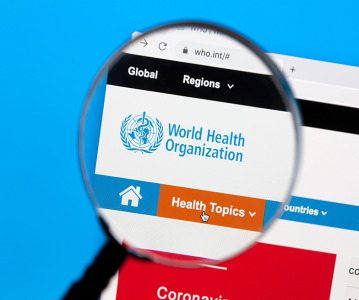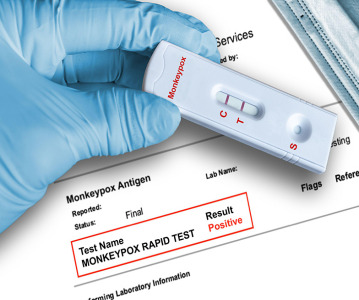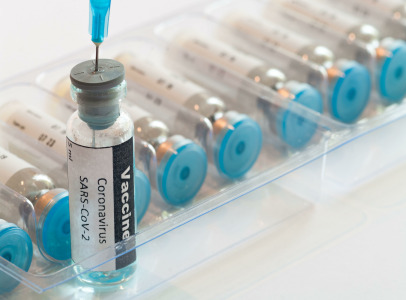Private health insurance uptake boosted by COVID-19 in MENA region, says latest Fitch report

New report from Fitch Solutions points to greater consumer awareness of health insurance benefits in MENA region amid pandemic crisis and assesses individual countries' progress in vaccine procurement and rollout
The COVID-19 pandemic will boost the uptake of private health insurance across the Middle East and North Africa (MENA) region, according to analysts at Fitch Solutions.
In a new report published January 12th, Fitch says health insurance will particularly see strong growth across the Gulf Cooperation Council (GCC) as the impact of coronavirus helps to drive demand.
“In the UAE and Saudi Arabia, where the implementation of mandatory cover has already boosted demand in recent years, greater consumer awareness of the importance and potential benefits of health insurance cover is likely to further increase as a result of the pandemic,” the report says.
The Fitch analysts say this development will increasingly be seen as a boost for the private healthcare sector in the region, which is becoming progressively more involved in healthcare funding.
What is more, as governments seek to reduce their involvement in the provision of medical services, the uptake of public-private partnerships will proliferate across the region, according to the Fitch report.
However, despite the growth expectations, the report warns that health insurers across the GCC will face a profit squeeze due to premiums struggling to keep pace with rising medical claims.
Varied access to COVID-19 vaccines
The report also highlights the issue of varied access to COVID-19 vaccines across the MENA region, with initial supply likely to be skewed towards wealthier countries in line with advance purchase agreements given the commercial approach taken by the vaccine developers which will be first to market.
Breaking down the MENA region into three distinct groups based on speed of distribution, Fitch says it has begun to classify countries based on access deals and participation in collaborative procurement schemes.
The first group – which is also the largest -- comprises countries with the fastest access through near-term delivery of vaccines which have demonstrated efficacy or are already approved and includes Israel, Kuwait, Qatar, Saudi Arabia, Bahrain and UAE among others.
The second group of countries which has access to vaccines which are not likely to gain approval until the second quarter of 2021 or where a slower rollout is expected includes Algeria and Morocco.
And finally, the third group is made up of countries such as Iran, Iraq and that do not yet have deals in place for vaccines approaching approval.
The report says that while many countries have signed up to the World Health Organization, Coalition for Epidemic Preparedness Innovations and Gavi-organised COVAX scheme which intends to distribute vaccines equitably across participating nations and is now purchasing vaccines from developers, “progress on this front has been slow as many countries have also made deals direct with vaccine manufacturers, effectively booking large proportions of the available vaccine supply expected in 2021.
“As a result, we do not expect COVAX to make a significant improvement to the global vaccine access picture until at least H2 2021,” the report concludes.
Related News
-
News Accepting novel excipients for innovative drug development
With the rapid development and manufacturing of new drugs and therapeutics being pushed through the pipeline, excipient manufacturers are navigating a challenging landscape to meet the demand for new and novel excipients. -
News Biosimilars save patients $11B annually, but barriers to adoption remain in US market
Biosimilars introduce competition into the biologics market, driving down prices and increasing patient access. -
News Connect to Frankfurt - Five reasons to tune in
Get a jump-start on your CPHI Frankfurt experience with exclusive access to our online event platform. -
News WHO calls on public for ideas to rename monkeypox
‘Poxy McPoxface’, ‘TRUMP-22’, and ‘Mpox’ are just some of the suggestions submitted by the public -
News Chinese market represents ‘single greatest generational opportunity’ for Pharma
China’s pharmaceutical industry is changing from formerly generics-focused into one that emphasizes innovation, spurred by shifting government policy and an aging population. -
News Monkeypox Update: Vaccine shortage, sewage surveillance and global testing
As concern over the monkeypox outbreak continues to rise, we take a look at major developments from the first week of August. -
News mRNA production partnership to scale-up COVID-19 vaccine development
GreenLight Biosciences and Samsung Biologics announce mRNA production partnership to scale mRNA vaccine production to a commercial level with Samsung's expanded mRNA drug substance manufacturing site. -
News The Data Revolution: How Real-World Evidence is Changing Pharma
A look at the companies extracting valuable insights from health data to accelerate clinical development and support regulatory decision making.
Position your company at the heart of the global Pharma industry with a CPHI Online membership
-
Your products and solutions visible to thousands of visitors within the largest Pharma marketplace
-
Generate high-quality, engaged leads for your business, all year round
-
Promote your business as the industry’s thought-leader by hosting your reports, brochures and videos within your profile
-
Your company’s profile boosted at all participating CPHI events
-
An easy-to-use platform with a detailed dashboard showing your leads and performance







